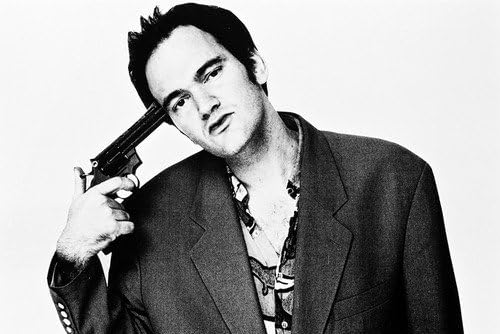Quentin Tarantino recommends two documentaries that totally fuck with your head..

“Documentary” - giving a factual presentation consisting of documents.
"Medium Cool"
I wouldn’t call “Medium Cool” a documentary. Although the acting performances, script, and cinematography is highly believable, giving you that real life feeling, it’s still a three-act movie based on fact and opinion.
A scene that particularly struck me was the interview with the cab driver. This is a perfect analogy for the state of feared racism we live in today, and back when this film was made. It begins with the cab driver’s friend asking him about ten thousand dollars he found in his cab, and turned into the police. “Were you acting as a Negro, or were you acting as a black man?” This is the documentary side of the film. It provokes reasonable questioning, like what it meant to be black during the 1960’s, during the black panther movement, race riots, etc. “Do you realize how much ammunition and guns ten thousand dollars would afford?”- his friend says. Cut to Robert Forster buying cigarettes outside their house, being threatened by a black man on the street for coming into their neighborhood. He is mimicked by the cab driver’s friend entering his house, but continues to keep his cool. “Total confusion” is what the cabby says about doing an interview on it. Forster is after a human-interest story, and tells him people will identify with you, to think about it before saying no. As he’s leaving, the cabby’s friends toy with Forster, not letting him leave peacefully without hearing what they have to say. We see this scene in movies again and again up to present movies today. (“Do the right thing”, “Training Day”) I think the way each individual reacts to this, depends on his/her upbringing and experiences in like wise situations. He is harassed by the two, borderline entrapment after it’s broken up and told: “I just saved your life, you realize that?” by another of the cabby’s friends. This scene shows the Negro’s contemptuous feeling for American politicized television, that they’re exploited to the interest of the viewer, sadly after someone dies. By Forster walking into their home for this interview, then abruptly trying to leave, it is seen as offensive and uncaring of what he’s really stirring up by putting them on the news.
“If I gotta be afraid for your argument to work, then you got no argument”- is Forster’s reaction to this, and the best damn line in the movie. I think it’s brilliant dialogue, showing both sides of the issue being right. Malcom X, for example, turned his back on his theory of “whatever it takes, violence or non-violence.” I don’t think you can discuss issues through fear, no matter the circumstances. Forster keeps his “Medium Cool”, and the scene ends unresolved, alongside other movies that deal with racism. There is no answer, and there’s no solution. There are only three sides to the issue: the victim’s, the racist’s, and the spectator in between.
“The Battle of Algiers”
This is more documentary style, more sequences than narrative commentary. If “a picture speaks a thousand words”, then there is a lifetime of information to be read in this film.
A most powerful scene is Ali taking Ben M’ Hidi to the Maison des Arbres. “Acts of violence do not win wars, nor revolutions.”- Ben M’ Hidi says. “It’s hard enough to start a revolution, even harder to sustain it, and hardest of all to win it. It’s only afterwards, once we’ve won, that the real difficulties begin.” This makes me think of the war in the middle east. Obviously, a different situation, but it confirms my belief: there is no logic in war, whether it’s justified by the majority or not. It’s a hopeless situation. Once a side wins, the real war (morals, democracy, religion) begins. There is no right way to live, and no country should believe that. History tells that terrorism is something instilled in human nature, for whatever sick and twisted reason. It was not go away, because terrorism comes out of /in different versions of holy wars. A holy war cannot be won. This single fragmented scene is the underlying moral within this movie. It’s the same in Holocaust films. They all end with a big question mark. It’s easy to show these philosophies on film, or on paper. Too bad it doesn’t work that way in reality.
Both of these films work as catalytic forums for the uneducated in these issues: racism, war, television media propaganda. It’s interesting to see these matters under the director’s creative magnifying glass, rather than a factual documentary. Documentary’s can be too liberal. They can feel lifeless, and present both sides of an argument without making a statement. Movies should make a statement in any genre. If I’m going to pay ten bucks and two hours of my time, I want the director’s opinion, whether I agree or disagree. The result response is more important than the facts.



Comments
Post a Comment